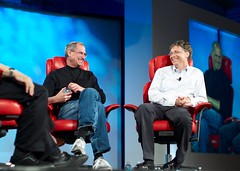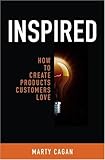 I’m obsessed with scaling.
I’m obsessed with scaling.
Not in the technical, keep-the-Fail-Whale-away sense. In the business sense.
Every time I work on a particular business issue, I can’t help but think: “How can I scale this process?” What can I do to increase efficiency, to produce more with less effort?
This is, of course, rooted in laziness. As Carl Stoddard said: “If necessity is the mother of invention, then laziness must be its father.”
Have you thought about how you can be more lazy with your business? About how you can make your business operations more efficient?
Thinking About Scalability in a Service Business
To get you thinking about business scalability, here are some processes we’ve set into place for our web development agency, WebMocha. A service business like ours is different from a product business, so keep those differences in mind if your business is of the latter type.
Scaling Resources
Revenue potential in a service business is tied directly to your resource capacity. The more talent you have, the more client projects you can take.
However, resources are finite. So how can you scale your resources?
By increasing their productivity. This can be done through training & mentoring, providing them with efficient frameworks & methodologies, automating repetitive tasks, and removing roadblocks from their paths. Doing this well requires careful examination of their workflow, since a well-intentioned but unenlightened process addition can sometimes hurt more than help.
This is why service companies that have been around for years tend to be better than newer shops. Assuming they’ve been actively scaling their business, they’ve had more time to study and improve their methodologies. The result is more value for their company and their customers.
Scaling Clients
Another revenue driver of a service business is the number of client projects you can get. The more paid projects you have, the more revenue you are making.
However, finding customers is difficult. So how can you scale your clients?
By increasing the number of projects you get from existing clients. Since customer acquisition costs are high, if you can encourage current & previous customers to pay for your services again, you’ve skirted those acquisition costs. This requires providing high-quality work, personalized attention, thoughtful follow-up, going above & beyond, and an attitude of “we’re all on the same team” as opposed to “us vs them.”
Another way to scale your clients is to streamline the customer acquisition process. This requires exploring various channels and analyzing which offer the most efficient conversions. For some companies, it’s SEM. For others, SEO. Yet others, social media. For us, it’s the use of brand champions and word-of-mouth marketing. An analysis of our channels has taught us to focus on what works best. The other channels are de-emphasized: we do a little SEO and social media marketing, but no SEM at all.
What Can You Do?
Look at your business processes. Your resources, customer acquisition process, marketing tactics, inventory, distribution channels, etc. If you have the data, examine each one to see where you can be more efficient. If you don’t, instrument your processes to get some data. Or interview your employees to get some qualitative information.
Then you’ll need to think creatively. The answer isn’t always obvious. Talk to a mentor if you have one. Post a question on LinkedIn Answers or Bright Journey if you want outside help. Or even better, talk to your employees. The people doing the actual work will often have lots of good ideas. After all, this will be making their lives easier.
Then you can sit back and revel in your laziness.
Photo by: ~Brenda-Starr~
 Why quit quietly when you can quit hilariously?
Why quit quietly when you can quit hilariously?


